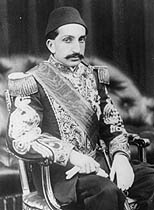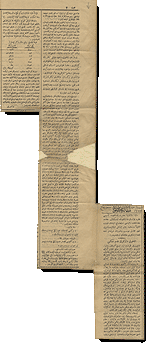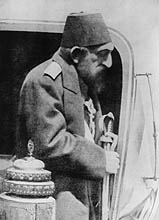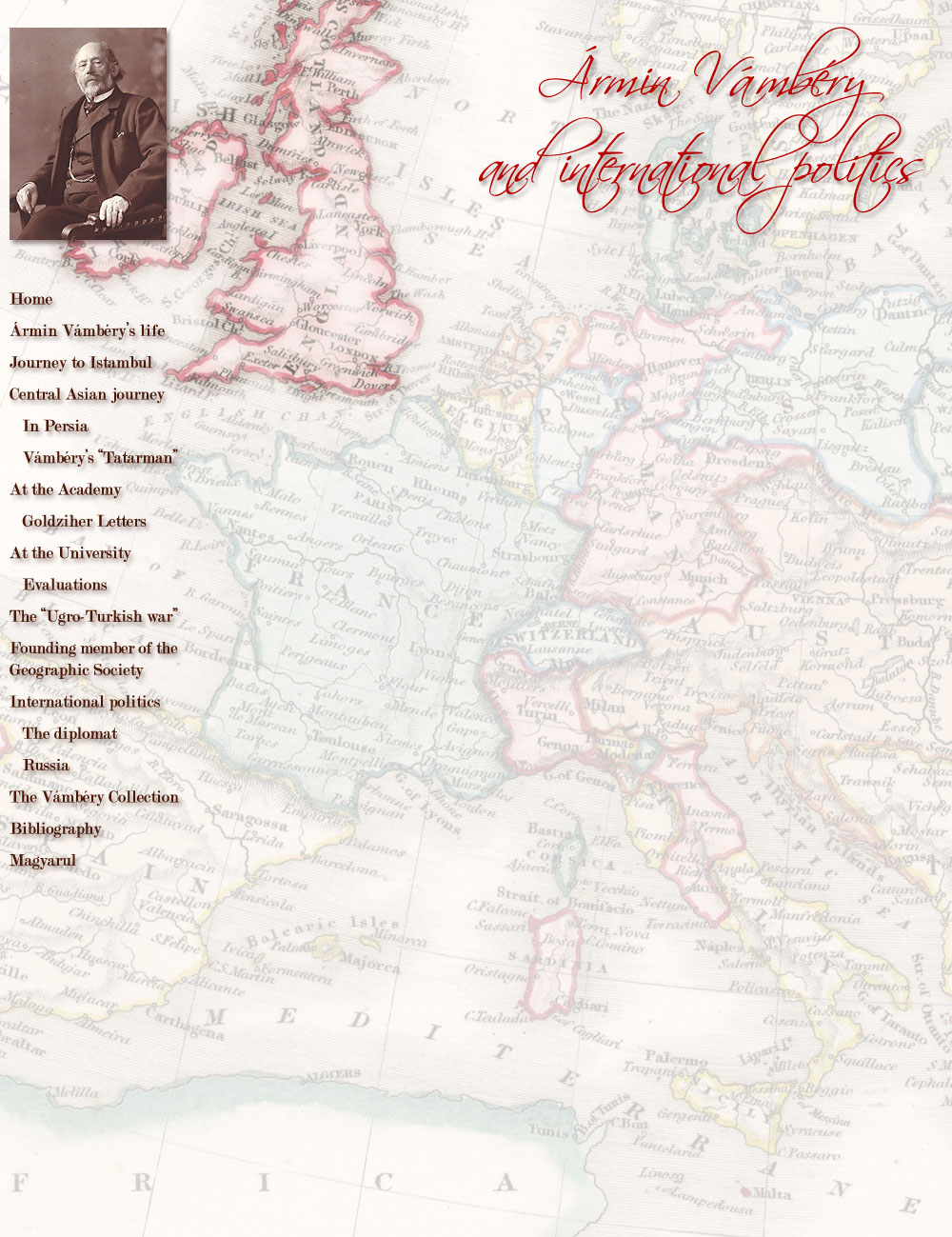 Gábor
Fodor:
Gábor
Fodor:
Vámbéry, the journalist, diplomat and mediator
Ármin Vámbéry first entered the land of the Ottoman Empire in 1857,
almost as a beggar. The young man encountering the colorful bustle of Istanbul
was immediately charmed by the atmosphere of the Eastern capital, so it is no
wonder that he devoted a large part of his life to the research of the Turks.
Vámbéry, who first earned his living from reciting Muslim holy texts, in a few
years became the home tutor and beloved guest of the families of the Ottoman
elite, so his name became known both to the European ambassadors accredited to
Istanbul,
 and to the bureaucrats governing the domestic and international
politics of the Ottoman Empire. Moreover, the young man teaching foreign
languages had the occasion to personally meet Sultan Abdulaziz, and make
acquaintance with the young successor to the throne, Adulhamid II as well.
and to the bureaucrats governing the domestic and international
politics of the Ottoman Empire. Moreover, the young man teaching foreign
languages had the occasion to personally meet Sultan Abdulaziz, and make
acquaintance with the young successor to the throne, Adulhamid II as well.
The sympathy of the Turks, usually suspicious of Western people,
was won by Vámbéry through his excellent gift of languages, and through the
knowledge of Eastern habits (among others, by always bringing gifts with himself to
his visits), so he enjoyed a great esteem before the important officers of the Porta.
His fame was further increased by his Central Asian journey, started in
1861, after which half of Europe got to know him, and in Britain he was received
with honors due to a hero. The Hungarian explorer, who made a worldwide fame by
describing lands which were previously considered white spots, soon became
a popular guest of several members of the British royal family, and of a number
of influential aristocrats.
 Appointed a teacher at the University of Pest, Vámbéry played an increasingly
important role in the development of the Anglo-Turkish and Hapbsburg-Turkish
relations, thus he was also received in the Ottoman court as a guest of honor.
This was especially so after the ascension to the throne of Sultan Abdulhamid II
(1876) and the Egyptian conflict (1882), as the new Ottoman ruler expected
Vámbéry, publishing worldwide and familiar with the Eastern mentality, to be the
messenger of the position of the Porta as well as its European contact.
Appointed a teacher at the University of Pest, Vámbéry played an increasingly
important role in the development of the Anglo-Turkish and Hapbsburg-Turkish
relations, thus he was also received in the Ottoman court as a guest of honor.
This was especially so after the ascension to the throne of Sultan Abdulhamid II
(1876) and the Egyptian conflict (1882), as the new Ottoman ruler expected
Vámbéry, publishing worldwide and familiar with the Eastern mentality, to be the
messenger of the position of the Porta as well as its European contact.
Known to the Turks as “Reshid efendi”, Ármin Vámbéry was considered
for three decades a special guest in the Dolmabahçe palace, but over the
years he became more and more estranged from his former friend, the wily, but
dictatorial Abdulhamid II. While in the late 1880s and early 1890 the Hungarian
scholar was received at the railway station of Istanbul by the Sultan’s orchestra,
and the Sultan’s aide personally cared for his comfort, and then Abdulhamid II
received him at private audiences (which was absolutely unusual from the Ottoman
ruler), their relationship increasingly deteriorated after the massacres of the
Armenian pogroms in 1894-1896. Although from 1889 Vámbéry stood in close
relationship with the staff of the British Foreign Office, and he regularly
reported about the conversations between him and the Sultan, this was not the
reason of the decrease of his role and the estrangement of his Turkish
relations.
 The notorious anti-Russian researcher, who in 1849 personally lived through the
invasion of the Russian troops in Hungary, worked in all his life for a European
joining of forces against the empire of the Tsar, but after a time his efforts
interfered with great political interests. Thus, by the end of the first decade
of 1900 his
diplomatic and intelligence work became increasingly burdensome both to the
Brits in search of the friendship of Russia, and to the Hapsburgs at odds with
the Turks for the control over Bosnia, thus the aging scholar was put offline.
Until his death in 1913, Vámbéry could not influence any more his Western friends
as much as he did in the previous decades.
1
The notorious anti-Russian researcher, who in 1849 personally lived through the
invasion of the Russian troops in Hungary, worked in all his life for a European
joining of forces against the empire of the Tsar, but after a time his efforts
interfered with great political interests. Thus, by the end of the first decade
of 1900 his
diplomatic and intelligence work became increasingly burdensome both to the
Brits in search of the friendship of Russia, and to the Hapsburgs at odds with
the Turks for the control over Bosnia, thus the aging scholar was put offline.
Until his death in 1913, Vámbéry could not influence any more his Western friends
as much as he did in the previous decades.
1
The name of Vámbéry was soon forgotten in Turkey, entangled in war for almost a decade after the outbreak of WWI. The Hungarian scholar, who first told to Sultan Abdulhamid II about the existence of the Eastern branch of the Turks – and who also had his share in the wake and development of the Turkish national identity – came again in the spotlight in the early 1980s, but this time as a British secret agent. Mim Kemal Öke’s Abdulhamid II and his age in the light of the reports of the British secret agent Professor Ármin Vámbéry 2 was based on the documents first published in the Vámbéry biography of the British authors Alder and Dalby. 3 On the basis of Vámbéry’s letters preserved in the archives of the British Foreign Office, the Turkish author tried to present the Hungarian Turcologist as a spy and a double agent, and in the enlarged second edition of the book even his Jewish origin and his relations with the Zionist movement were highlighted. 4 Nevertheless, one can state that the merits of the Hungarian scholar have not yet been forgotten in Turkey, and still many books and conferences commemorate the adventurous traveler, who entered his name into the history of the Turkish, British and Hungarian people.


















